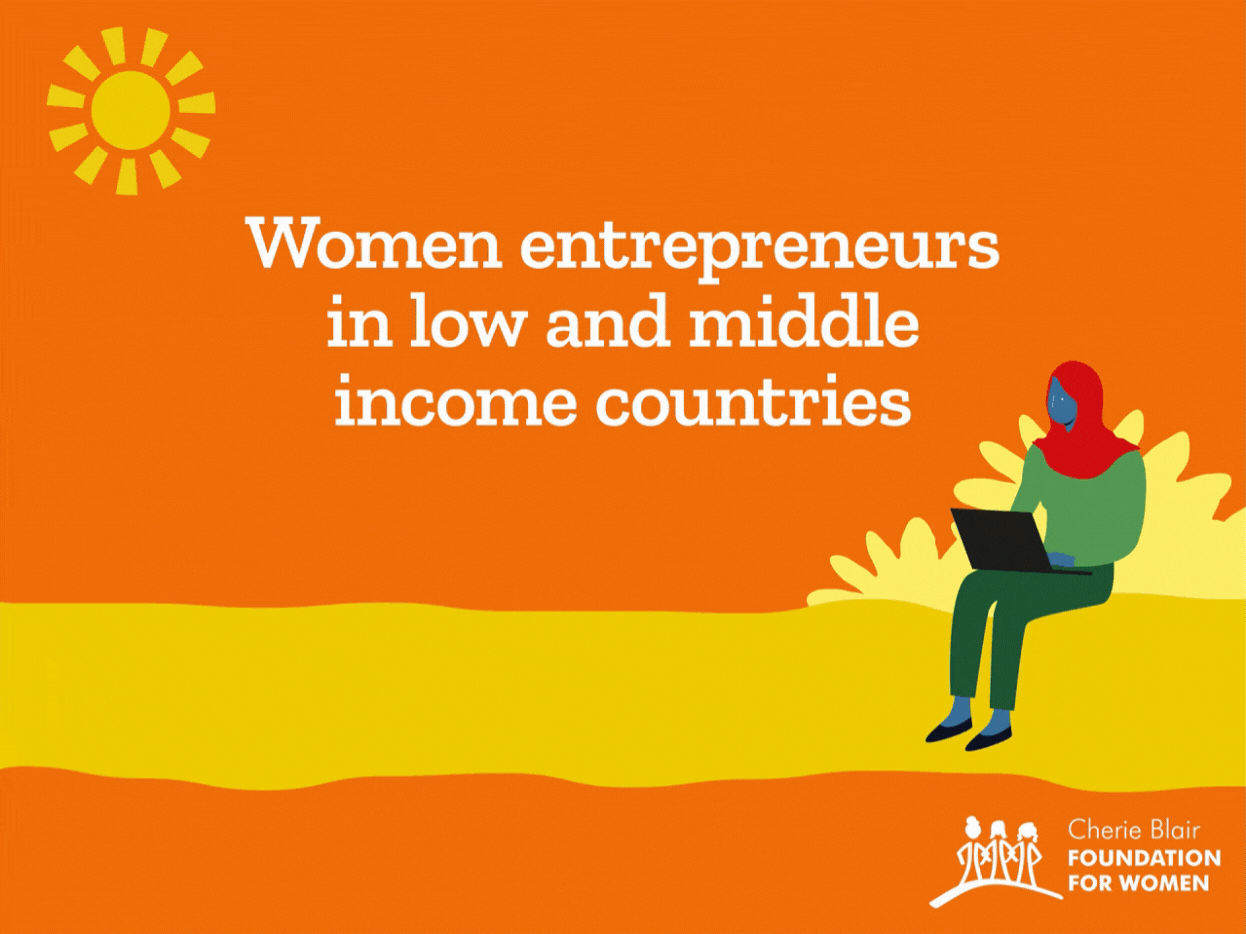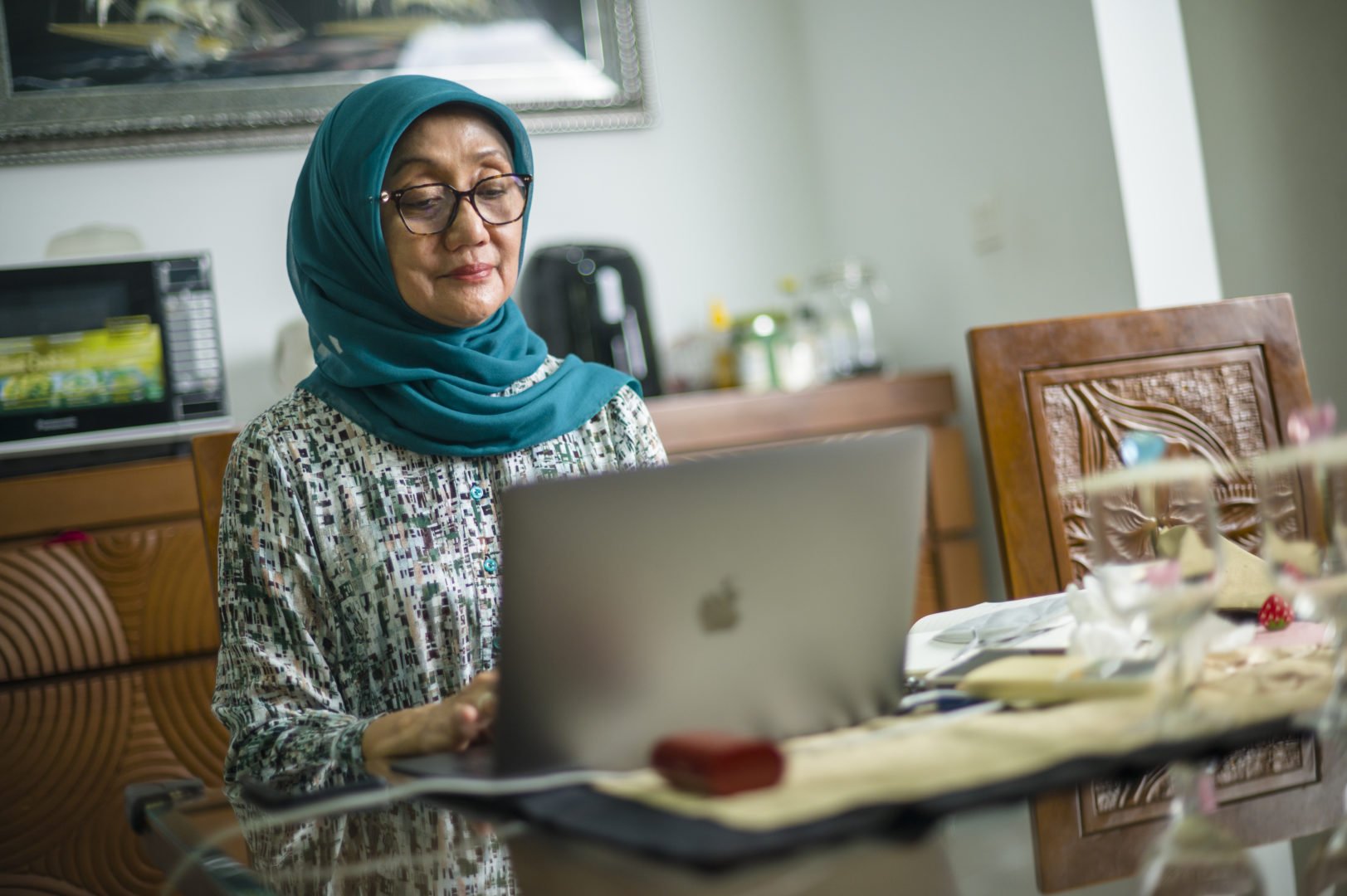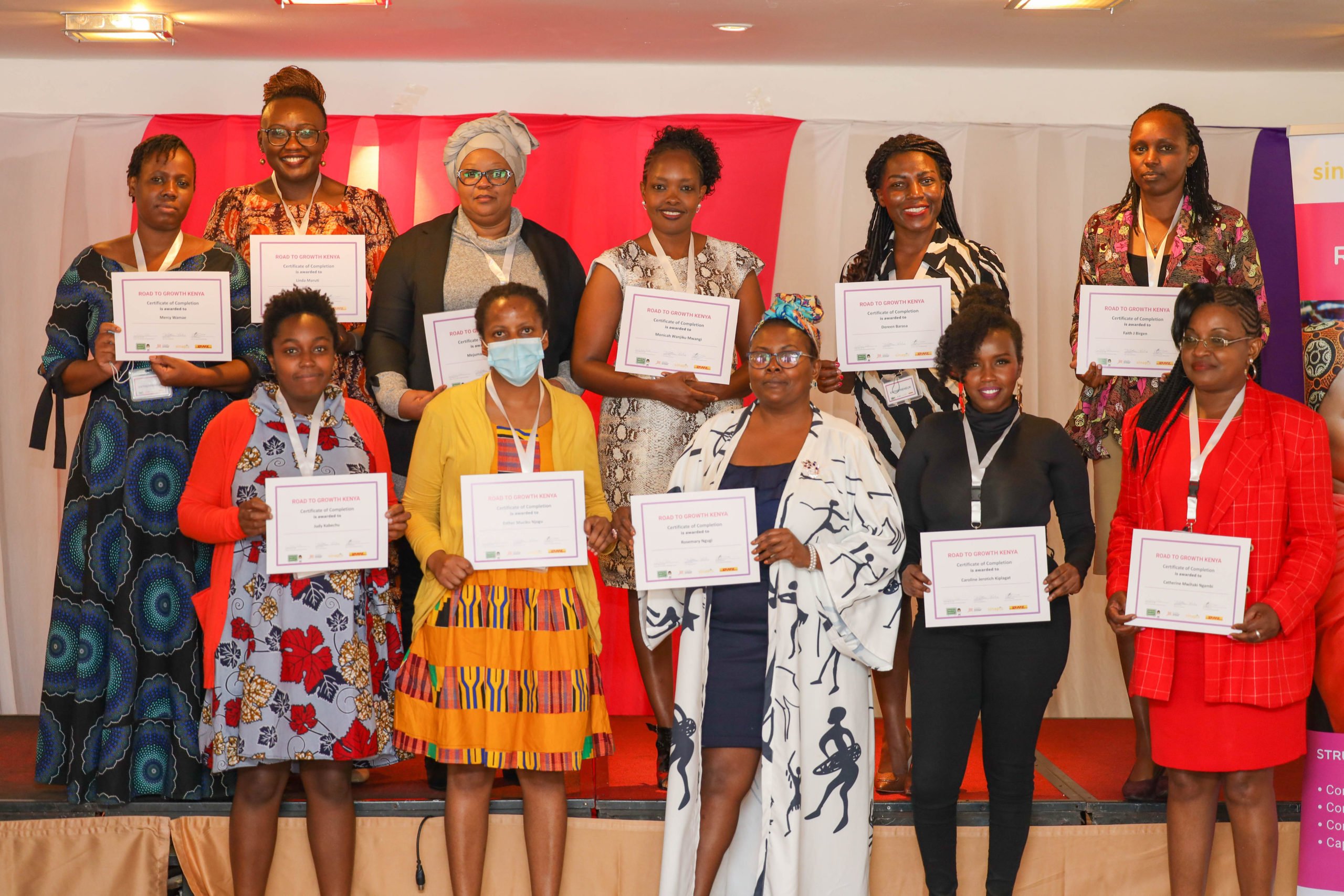Our WEAVE project ran in Indonesia and Vietnam in 2020 and 2021. It successfully supported over 12,000 women entrepreneurs through our three online programmes – in the midst of the global pandemic. Alice Allan, Challenge Director at Business Fights Poverty, explores some of the key lessons learned from switching to digital delivery in order to continue working through the crisis.
WEAVE was delivered in partnership with USAID, Qualcomm® Wireless Reach™ and in-country partners Kinara and WISE, using technology and assets developed with ExxonMobil Foundation.

‘Life has been anything but business as usual for women entrepreneurs during COVID-19’, states a recent World Bank blog; arguably it has been business as usual, but harder.
Existing inequalities relating to caregiving, to the digital divide, and to inadequate financing have been exacerbated during the pandemic—particularly in low and middle income countries—and overall, women-led businesses have generally seen larger declines in sales and profits, and have been more likely to close down (at least temporarily).
The Cherie Blair Foundation for Women decided to seize the moment, designing an innovative online learning project during the pandemic to reach 12,200 female entrepreneurs in Indonesia and Vietnam. This article explores what the switch to digital delivery has looked like in practice. It offers lessons learnt in order to ‘build forward better’ and help donors and investors get Sustainable Development Goals 5 (gender equality) and 8 (economic growth) back on track.
The challenges female entrepreneurs faced during COVID-19 in Vietnam and Indonesia
Vietnam is ranked second in Southeast Asia in terms of women’s business ownership, yet 99% of these businesses are micro-, small-, and medium-sized enterprises concentrated in lower productivity ‘service’ sectors that were particularly susceptible to disruption during the pandemic. This includes food, hospitality, retail and health – half of which were partially suspended or temporarily dissolved during COVID-19. Compounding this situation is the increase in care-giving and household responsibilities women have faced. Indeed, even pre-COVID women undertook 4.5 hours of unpaid work a day (three times as much as men) in Vietnam.

In Indonesia, female entrepreneurs are also engines of growth – SMEs account for more than half the country’s GDP and women entrepreneurs own 60% of them. Whilst in Indonesia a government support package was ear-marked for SMEs during COVID, globally many of these emergency funds have reached more men than women. Other challenges for women entrepreneurs in Indonesia during COVID included a lack of support for the shift online, including training and uneven internet provision. Digital access is further hampered by a small but remaining gender divide in terms of mobile phone ownership (10% gap) and mobile internet use (14% gap).
The WEAVE Programme
During May 2020 to November 2021, the Cherie Blair Foundation for Women responded to the emerging needs of women entrepreneurs in Vietnam and Indonesia with a new, wholly online pilot programme, ‘Women Entrepreneurs Amplifying Ventures and Economies’ (WEAVE). The programme promoted women’s economic empowerment through a three phased “learning journey” tailored to women’s progression within their business’ development. This included:
- A mobile learning app, ‘HerVenture’, for 12,000 women at the early stages of their business.
- A six-week online business management and investment readiness programme, ‘Road To Growth’ for 266 women whose businesses had already been generating profit for 2 years and were seeking more investment.
- ‘Mentoring Women in Business’, an online professional mentoring scheme for 105 women with mature, existing businesses, carefully matching women with business professional mentors elsewhere in the region for six months.
All of these outcomes not only addressed women entrepreneurs’ immediate situations, but have also laid the ground-work to prepare women for the predicted growth in e-commerce.
Five key lessons learnt:
1. The power of local partners to extend reach beyond urban centres. The Foundation worked with local implementing partners Kinara (Indonesia) and WISE (Vietnam). These partners helped identify the entrepreneurs and disseminate information about the programme through multiple national networks including business associations. In addition to reaching women that were experiencing lock downs and forced to stay in their homes, the shift online meant that instead of only targeting major cities the programme could reach different parts of the country helping to break down some of access barriers that peri-urban and rural entrepreneurs face.
2. Digital capability training is needed upfront but then the skills are hardwired. ‘You’re on mute’ will probably remain one of COVID-19’s most memorable phrases. Everyone from schoolchildren to elderly relatives had to learn new digital skills quickly in order to stay in touch, buy or sell essential goods, or work remotely. Women entrepreneurs were no different, and participants in the programme had to learn digital skills quickly to adapt and survive. One woman that had sold food outside schools had had to change when the schools closed and sell online. Many others had to adapt their marketing and logistics strategies using online platforms. Local partners once again came to the rescue by innovating and running trainings on download and use zoom and other digital platforms and giving women 1-1 support at the start. Whilst initial learning might require more of women’s time, once those skills are learnt, they stick and offer flexibility in terms of working around caring responsibilities. And they offer the opportunity to tap into the ever growing e-commerce sector – estimated to be worth $6.2billion in Vietnam and growing.
3. Entrepreneurs need networks and mentors to build their resilience. Professor of Entrepreneurship Ute Stephan at Kings College London has spoken about the loneliness experienced by entrepreneurs and the importance of networks for building wellbeing and a strong business. WEAVE successfully managed to maintain a network for the cohorts of entrepreneurs – using, like many of us, WhatsApp groups. The jury is still out as to whether it beats ‘in person’. For example, whilst 94% of participants stated their local networks had grown during the programme, 70% of those surveyed during an initial market assessment preferred the idea of in-person training.

4. Women are hungry to build influencing and leadership skills. Two of the most entrenched barriers women entrepreneurs face are gender stereotypes and access to finance. Prof. Ute says that when most people think of entrepreneurs ‘they still think of white men in suits in the US’. Social norms that emphasise the roles of women as primary carers and home makers are prevalent in both Vietnam and Indonesia. There also remains a $1.7trillion financing gap for women entrepreneurs globally. Building women’s leadership and influencing skills was an extremely popular ‘add-on’ of the WEAVE programme amongst participants. This makes complete sense – building women’s confidence in their own abilities and business whilst also enabling them to ultimately challenge policies and regulations that impede their long term success.
5. Online training offers more flexibility and the potential to tailor learning journeys. It is still too early to tell if completion rates of all the participants will be higher or not due to the online nature of the programme. And whilst participants stated a preference for in person training prior to the programme, given the ongoing shift to digital during COVID-19, perhaps participants will feel differently now. Previous efforts by the Foundation to design an online course in Nigeria were all ‘self-paced’, but this time the sessions were entirely facilitated to try to replicate the in-person benefits. The team feel this ‘blended learning’ is the way forward and offers the best of both on-line and off-line worlds. When it came to the learning journey, the team found that whilst the programme was designed as a linear progression, learning is not necessarily linear. Instead, training programmes should encourage women entrepreneurs to join at the phase that is most appropriate to their business knowledge and growth needs. And programmes need to build in sufficient gaps between the training phases to enable participants to start applying what they have learned to their businesses. So more ‘pick and mix’ than ‘follow the leader’ if you like.
The WEAVE online pilot has clearly addressed some of the key challenges faced by women entrepreneurs during COVID-19 – widening the pool of entrepreneurs reached, building their digital capability, improving business skills, creating flexibility for time poor women with caring responsibilities and developing online networks to overcome lockdowns and social distancing. All of these outcomes not only addressed women entrepreneurs’ immediate situations, but have also laid the ground-work to prepare women for the predicted growth in e-commerce. Systemic barriers remain in terms of gender norms and stereotypes and access to financing, but that is why the ‘influencing skills add on’ part of the programme needs to become a core function. Thus enabling the growth of economically and politically active entrepreneurs that are better able to challenge policy barriers and financing inequities.
This is not to say that women entrepreneurs are responsible for fixing all the barriers by themselves, but they should at least have the tools to realize their rights. For those eager to develop ever more ambitious digital programmes for women entrepreneurs, including for example the new USAID gender strategy, a combined focus on enhancing women’s digital and influencing skills will be vital to overcome the on-going barriers to women’s entrepreneurship that COVID-19 has entrenched.
Made possible by...




Partner with us for incredible global impact
Partnership working is crucial to the success of our programmes. We work closely with companies and institutions to design bespoke projects that harness their expertise, fulfil their objectives, and realise their passion for sustainable development. Working together, we can be an instrumental driver for women’s economic empowerment.
Find out more

